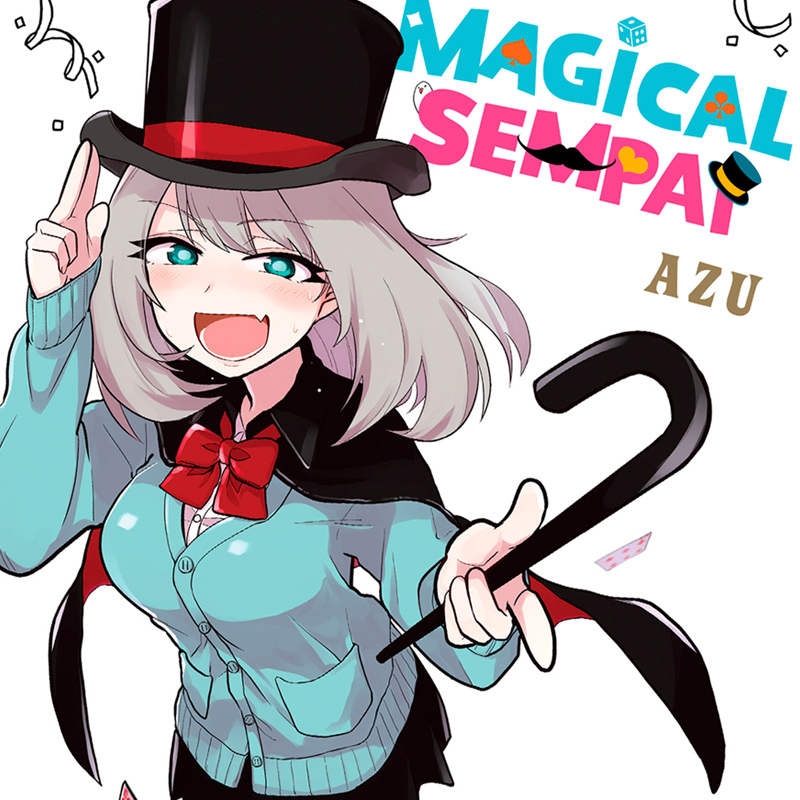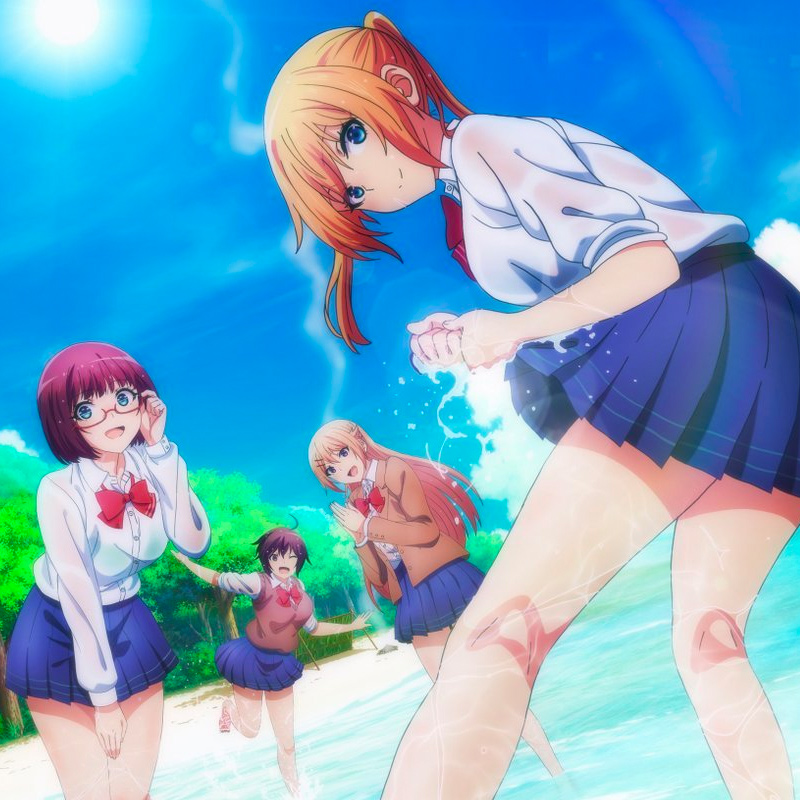
A new anime season is upon us, and all around the world fans will be watching the new offerings studios have put forth to see which ones will prove to be outstanding sources of entertainment and memes, and which will be dropped faster than an Idolmaster vs. Boku no Pico crossover. We never know ahead of time which new anime series will really stand out and become beloved shows like Kaguya-sama: Love is War, and which will have the cutest and most popular female characters to provide us with our favorite seasonal waifus. One show I started watching was Tejina-Senpai, a cute and somewhat sexy slice-of-life about a clumsy girl who tries (badly) to perform magic tricks, to the chagrin of her deadpan male assistant. The English title is transliterated as Magical Sempai, which mildly triggers obsessive linguists like me since I feel senpai is the superior English spelling.
Tejina-Senpai is the story of a boy who’s just started a high school that requires all students to join a school club. One thing leads to another, and he finds himself shanghaied into the school magic club, where a cute but clumsy girl known only as Senpai tries to show off her skill at doing magic tricks. The trouble is, she’s positively terrible at it, and her magic tricks inevitably end up with her sprawled on the floor with her underwear exposed, or in some other amusing state of fan-service. It’s kind of like Dagashi Kashi, but with the jokes surrounding magic tricks instead of traditional Japanese dagashi candy.
One of the cornerstones of comedy is the “double act,” which makes use of banter between a sloppy, lazy, or otherwise comical character (the “funny guy”), and an extremely straightlaced and serious character (the “straight man”). This kind of humor is everywhere, including Laurel and Hardy, Penn and Teller, the Blues Brothers and R2-D2 and C-3P0, and has its origins in Victorian England and Vaudeville. This comedy structure is also a cornerstone of Japanese comedy, which is nearly always organized into boke (a word that means dull-witted, sometimes translated as trolling) and tsukkomi (the sharp-tongued replies of the serious character). Anime couldn’t function without boke and tsukkomi, and some of the best shows making use of this dynamic include…
- Konata and Kagami from Lucky Star are a classic example, as are Mai and Yuko from Nichijou
- The Pet Girl of Sakura-sou’s banter between Mashiro and Sorata is basically Rain Man: The Anime
- B Gata H Kei is centered around this humor dynamic, with Yamada making ridiculous jokes about how great life will be once she finally loses her virginity, and Takeshita taking her down a peg with deadpan replies
- Pretty much every character in Seitokai Yakuindomo is a tsukkomi, with only poor Tsuda and Suzu to deflect all the jokes hurled at them.
What are your favorite boke and tsukkomi character pairing? Will you be watching Tejina-Senpai? Tell us on Twitter!
One thing is clear: Japan is amazing when it comes to thinking of creative ecchi products, and thanks to J-List you can buy these no matter where you live in the world. Enjoy the new ero products our staff has posted for you today! Need total privacy when you order? Then use our Anonymous Shipping Service (A.S.S.)!
















